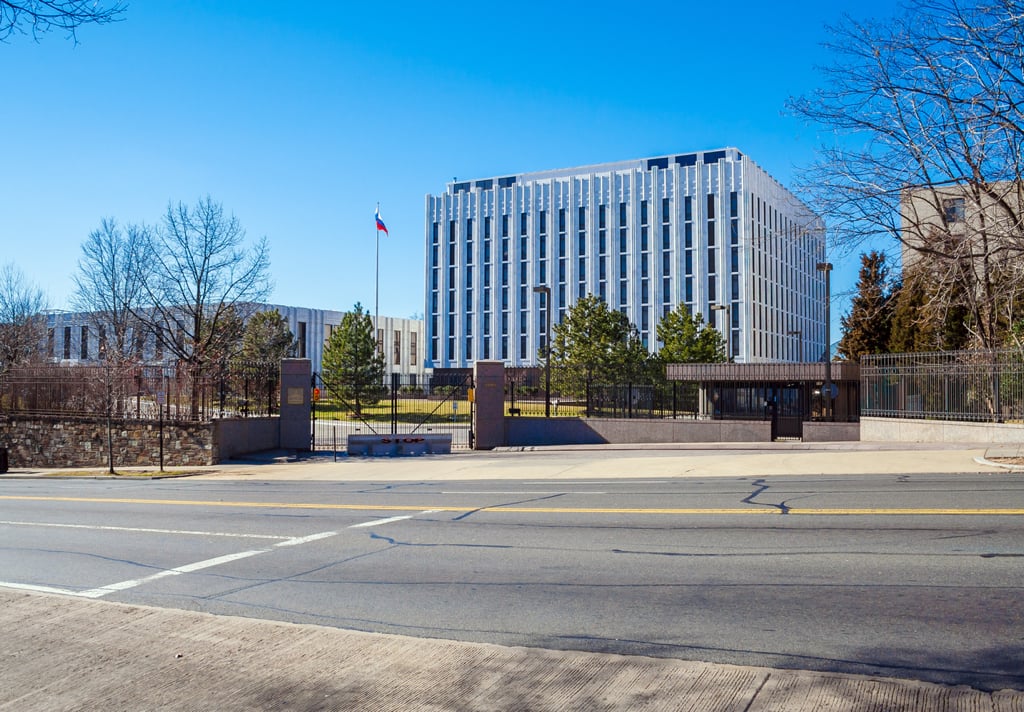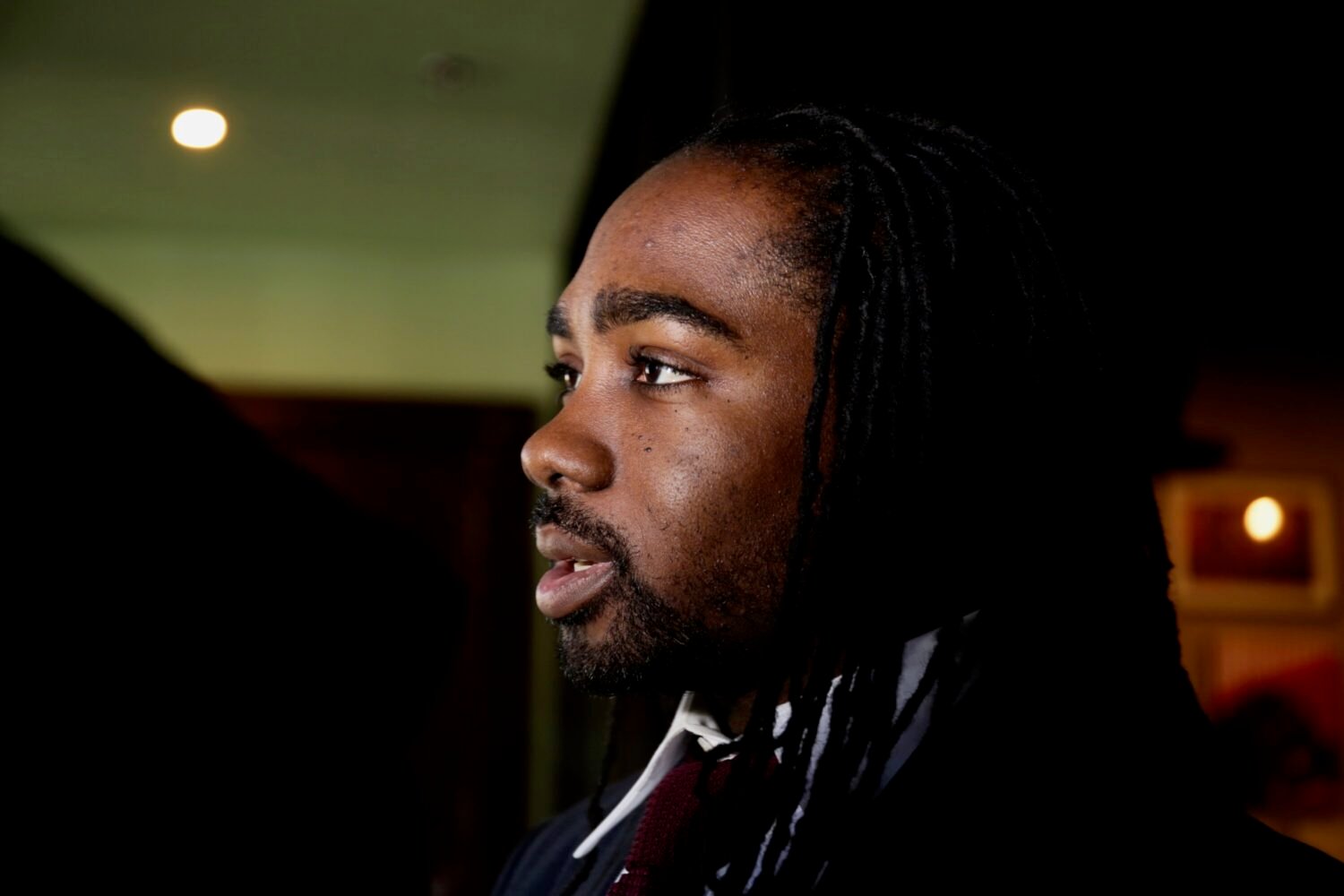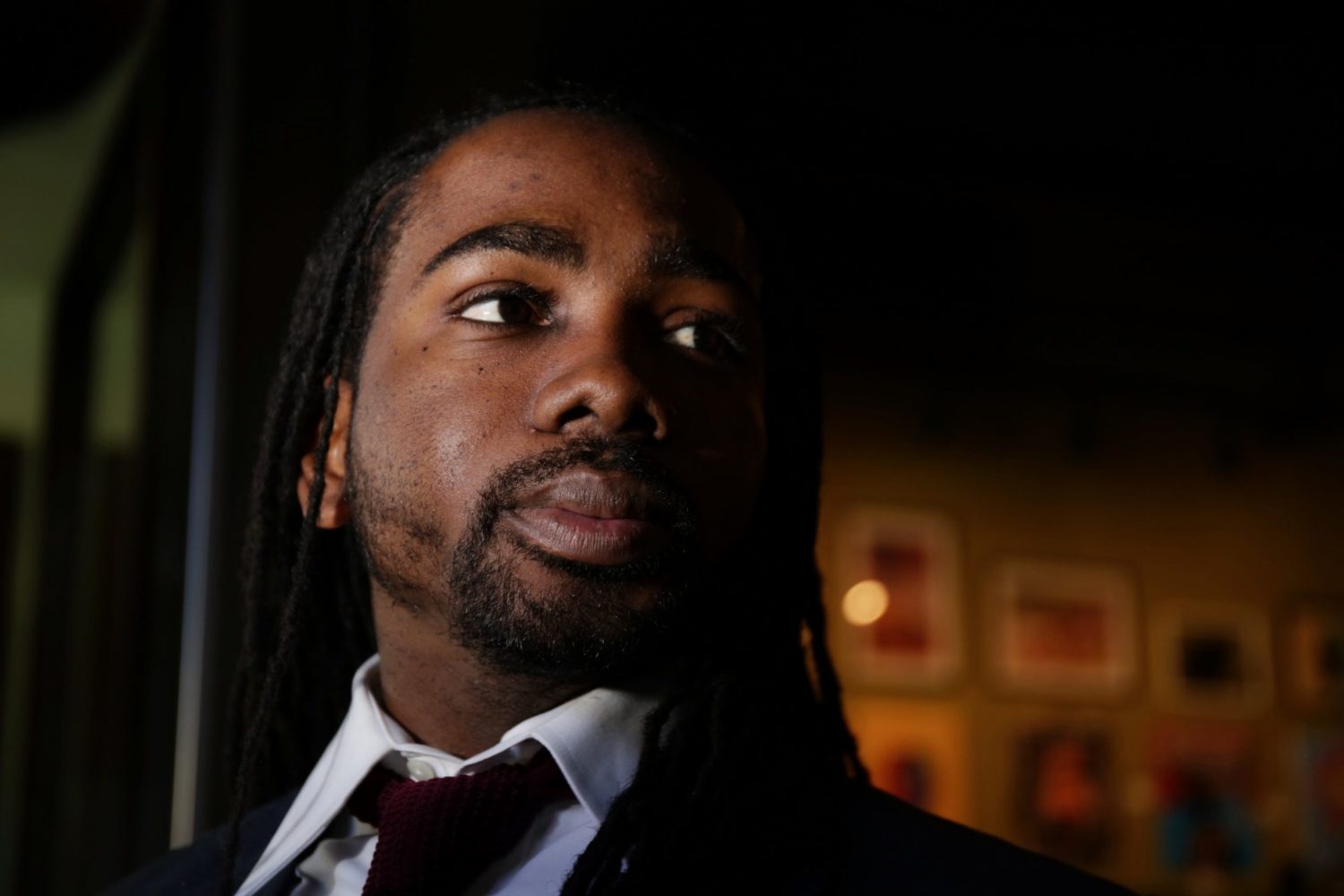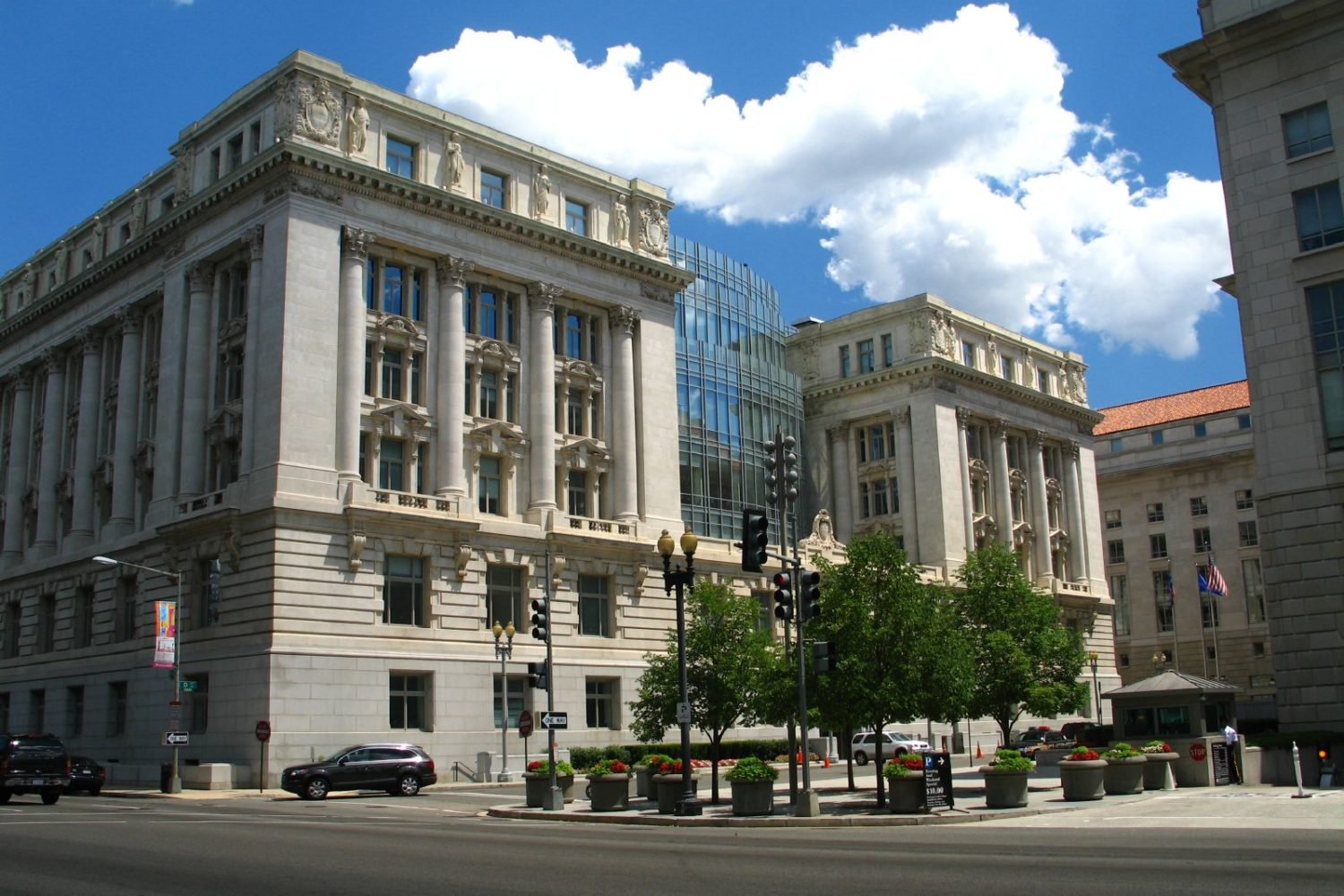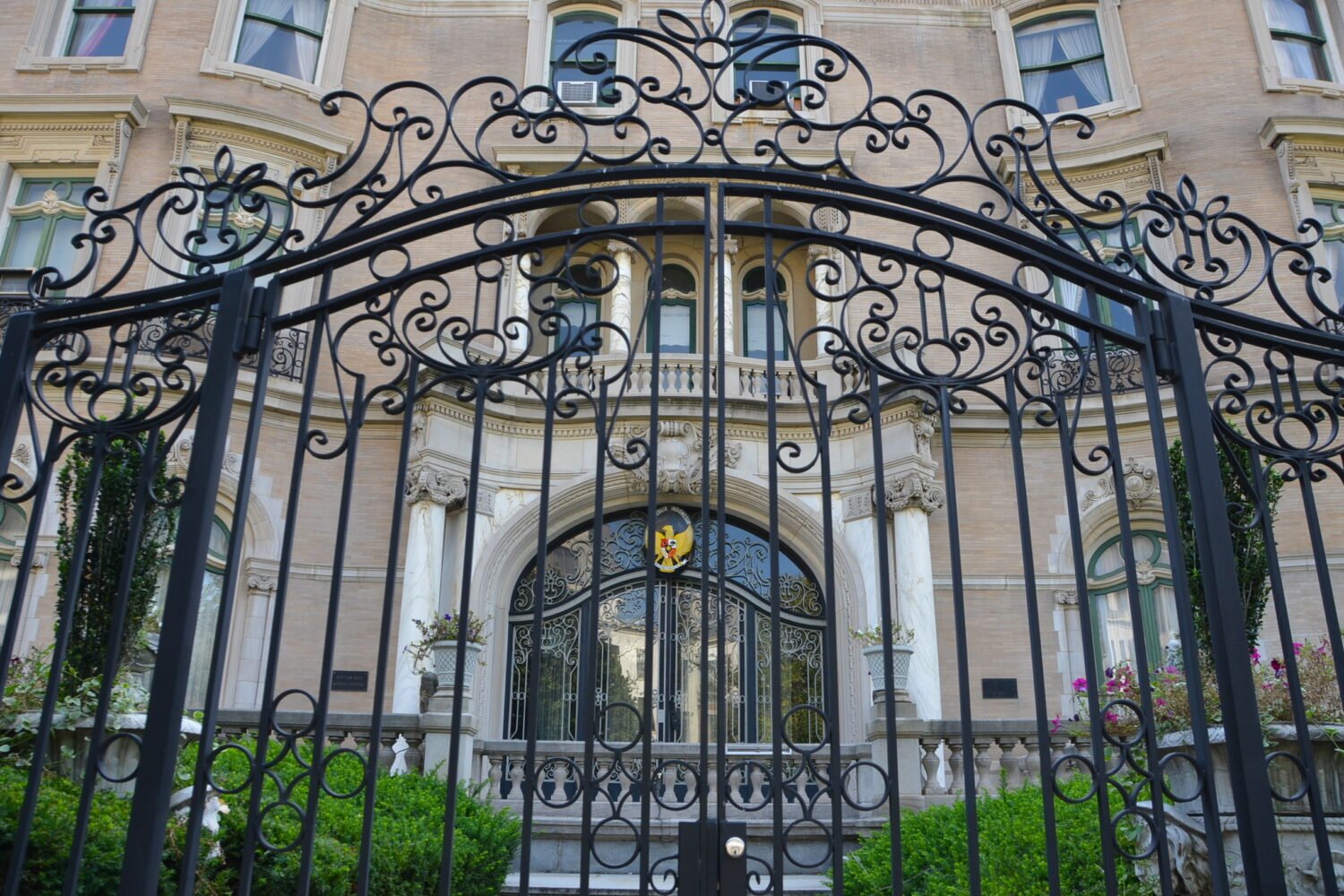The DC government has stirred the bear. Irked by the District Council’s plans to ceremonially name the portion of Wisconsin Avenue on which the Russian Embassy sits after a slain critic of Russian President Vladimir Putin, officials in Moscow plan to retaliate upon the US Embassy there. The American Embassy’s street address would be altered to “North American Dead End, 1” under legislation that Moscow’s city government plans to consider, according to state broadcaster Russia Today.
The move comes in response to the DC Council’s vote last month to rename the Russian embassy’s block of Wisconsin Avenue after Boris Nemtsov, a reformist leader who was gunned down on a bridge near the Kremlin in February 2015. Nemtsov had been a deputy prime minister in the 1990s under then-President Boris Yeltsin; later on, Nemtsov became an increasingly vocal critic of Putin’s expanding authoritarianism, leading an anti-Putin protest movement in 2011, and issuing reports on the Kremlin’s backing of Ukrainian separatists.
Renaming a bit of Wisconsin Avenue to poke at Putin started with Senator Marco Rubio, who introduced federal legislation that would’ve made the change through an act of Congress. But after Rubio’s bill stalled in Congress, he approached DC Council Member Mary Cheh, whose ward includes Embassy Row, about picking up the effort. Cheh was an easy sell. Even though President Trump‘s name does not come up in either the federal or city version of the renaming legislation, Rubio’s request offered the the DC government an chance to flick at its much-loathed neighbor, who speaks frequently about wanting a warmer relationship between the United States and Russia and his admiration for Putin.
“No matter what is going on in this country, we should still be the beacon for fighting democracy,” Cheh told the Washington Post last November, after Rubio turned the Nemtsov effort over to her. “Once this was presented to me, it seemed so right.” The Council approved Cheh’s bill unanimously last week, clearing the way for new street signs outside the Russian Embassy.Even if Trump did not figure directly into Rubio’s and Cheh’s plans, renaming a street after one of Putin’s staunchest critics prompted a reaction from some of Moscow’s staunches partisans. The “North American Dead End” initiative comes at the urging of Mikhail Degtyaryov, a member of the Duma and leader of the Liberal Democratic Party of Russia, a fringe group whose name belies its ideology. (It advocates for an ultranationalist restoration of the Russian Empire.) Moscow’s City Hall plans to take up Degtyaryov’s request later this month, RT reports.
A State Department official tells Washingtonian that renaming the location of the US Embassy to “North American Dead End,” is a matter for local authorities in Moscow. But renaming foreign embassies’ addresses to troll other nations is a common enough in modern diplomacy. A couple years before Rubio suggested renaming the Russian Embassy’s block to tweak Putin, Senator Ted Cruz proposed a federal bill that would’ve named International Place, the side street off Connecticut Avenue on which the Chinese Embassy sits, after Liu Xiaobo, a Nobel Peace Prize-winning dissident who died in a Chinese prison in 2016. (The White House said at the time that President Barack Obama would veto the move if it ever got to his desk, to avoid irking China.)More than anything, though, the efforts to rename DC streets after Nemtsov and Liu are a revival of a Cold War tactic in which diplomatic missions would find their addresses changed to reflect criticism from host nations or cities. In the 1980s, Congress passed legislation renaming a stretch of 16th Street, Northwest, where the Soviet Embassy then sat, after the physicist and dissident Andrei Sakharov. It was good for public criticism of the Soviet Union’s internal repression, but most likely did little to actually hasten the fall of Communism.Still, we can probably thank Communists for coming up with diplomatic-address trolling in the first place. In 1969, after Communists swept local elections in the Indian state of West Bengal, the new officials promptly decided to throw their co-partisans in North Vietnam a token of support by renaming the street where the US consulate in Calcutta (now Kolkata) after Ho Chi Minh. The Communists held on to power in West Bengal until 2011; and the US consulate’s mailing address is still named for Ho.

